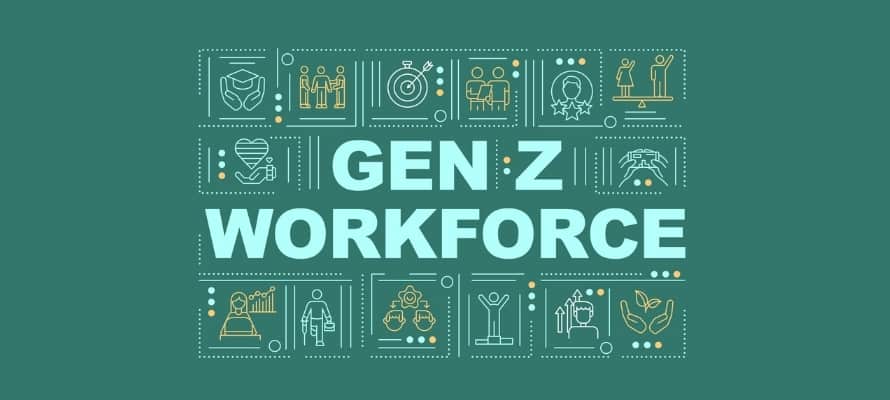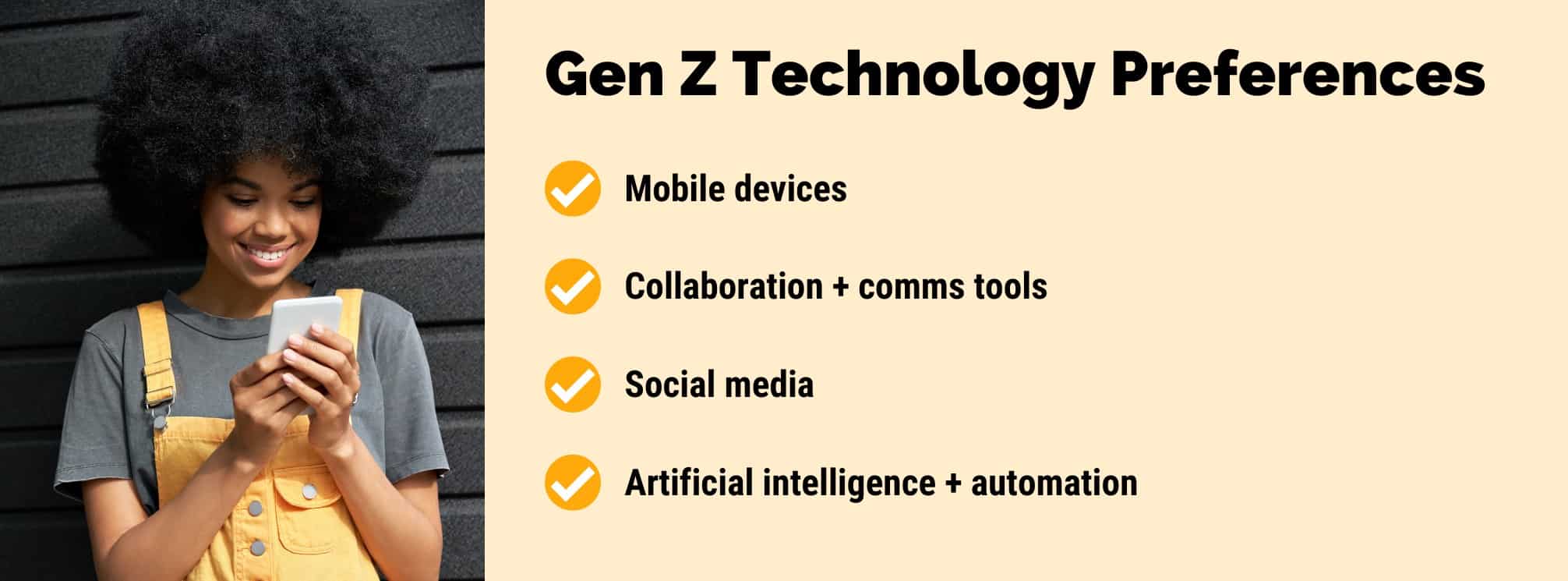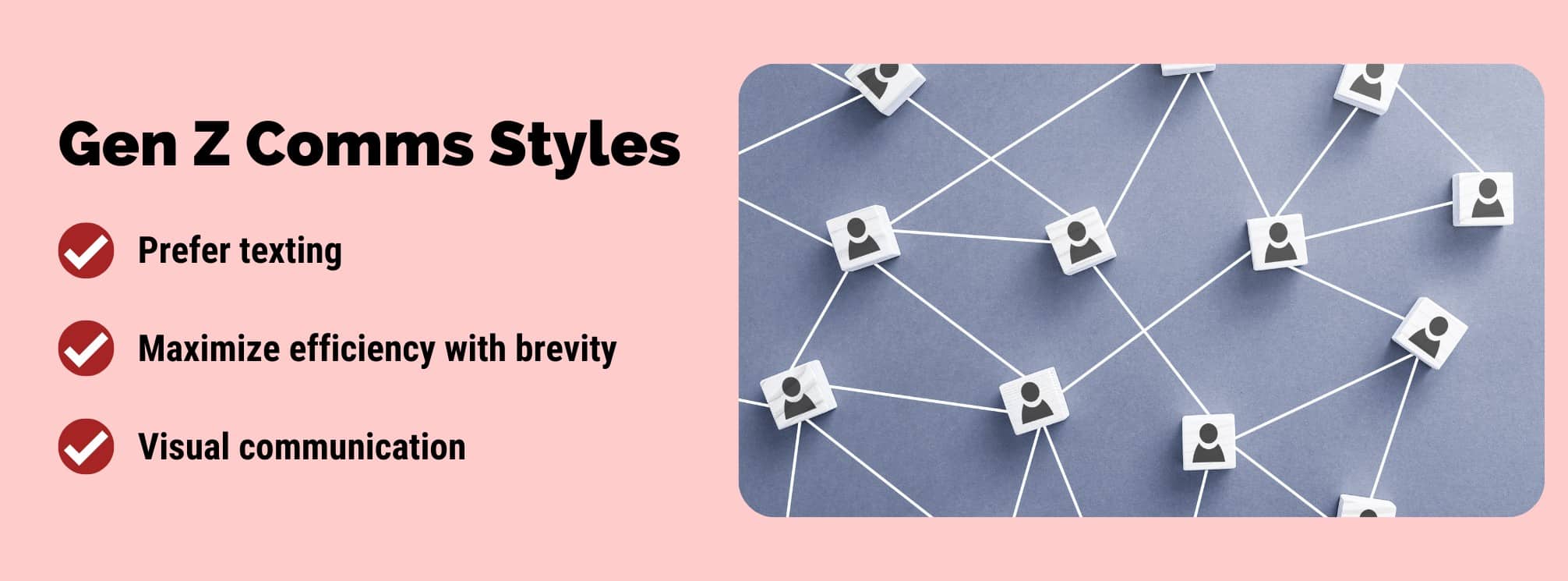
Generation Z is already shaking up the way we work. Although Gen Z is now the largest generation globally, they’re still a relatively small percentage of the workforce—about 12%. While some companies are worried about adapting to the most tech-savvy generation, this is actually a great opportunity. I think having Generation Z in the workplace will be a catalyst for positive change. They will help our cultures and ways of working evolve in ways we can’t even predict yet. But it’s the companies who take the time to adapt and learn more about this workforce who will be the most prepared for the future of work.
Let’s talk about how you can meet Gen Z where they are.
Generation Z (also commonly called Gen Z or Gen Zers) is the first generation to never know a time without the internet. Having grown up completely immersed in technology, with social media and smartphones, they have a very unique perspective on the world and work.
With unlimited access to information and the 24/7 news cycle, they are highly connected and often have strong convictions about how things need to change.
Gen Z is the generation immediately after Millennials, including those born in the late 1990s and early 2010s.
This cohort is also starting to join the workforce, with the oldest among them being in their young twenties. As such, they’re starting to shake up how we work and make us question norms such as flexibility, purpose, and how we use technology in the workplace.
Let’s talk about some facts about Gen Z:
Like with any generation, there are countless studies you can find to determine what motivates Gen Z, what they want, how they want to work, and so on. But if you truly want to support Generation Z in the workplace, we recommend asking them what they want. But this is a best practice for all your employee groups, not just Gen Z.
While a generation can be studied at a high level, it’s important to avoid generalizations. Your Gen Z employees might have vastly different needs than those who work at another organization. But don’t fall into the trap of stereotyping them. You have to make an effort to get to know the youngest generation of workers joining the workforce.
So, gather the feedback of Generation Z as they join the workplace. And look at their feedback as an opportunity, not an obstacle or a disturbance to the “way things are.”

As we’ve mentioned, your stance on key social issues is going to become a sticking point for Generation Z. And, frankly, you should thank them for their persistence on these issues. One of the big ones is going to be diversity, equity, and inclusion.
Another huge sticking point for this generation is going to be workplace technology. The reality is that these employees grew up with technology and want to use it at work for a good reason: it’s easy!
And since 97% of US adults own a smartphone (PEW Research), smartphone ownership and BYOD aren’t a generational thing anymore. But it will be something younger generations expect at work. So, if you haven’t yet, it’s time to embrace the digital revolution!
As digital natives, Gen Z wants access to all the tools they use in their personal lives at work. That means they generally want:

Gen Z’s preferred communication style is influenced by their digital upbringing. Unlike Millennials who are app-crazed, Gen Zers generally prefer the expediency of texting and instant messaging for communication.
Generation Z is also focused on maximizing efficiency with brevity. They don’t want fluff. They want straightforward, to-the-point communication.
This generation is also partial to using visual communication whenever possible. While they enjoy using GIFs and memes to react to conversations, they mostly care about how visual elements can add depth and context to their communication.
But remember, when it comes to communicating with any group of people, you have to learn their unique preferences. The best way forward to cater to all the generations working alongside each other is to create a flexible and inclusive environment.
To meet this new generation where they are, there are a few key things you can do:
Remember that all people, regardless of their generation, want to be valued and respected. So, don’t just focus on surveying and starting focus groups with Generation Z because they’re the new kids. Try to learn:
Even if you surveyed each group and generation before, remember things change. Keep asking!